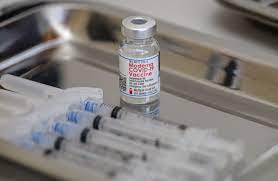The vaccine rollouts in 2021 were seen as a significant contributor to economic recovery. As vaccines provide an added protection against the novel coronavirus, people expect a gradual decrease in cases. With the reduction of infected individuals, various industries may slowly reopen and resume normal operations.
Currently, the UK government is planning to offer a third dose (booster shot) to individuals who have already received their complete COVID-19 jabs. A person is considered fully vaccinated after they receive their second shot.
It is common knowledge that vaccines lose their effectiveness over time and antibodies drop gradually. The third vaccine dose is meant to increase antibody levels and prolong the efficacy of the protective immunity it provides. Eligible individuals may be offered a booster shot at least six months after receiving their second dose.
With the increasing number of citizens getting their complete COVID-19 vaccinations, the government has started easing certain pandemic restrictions. However, other mandates are still in place, such as the requirement to provide a fit to fly COVID test. Fully vaccinated travellers are still required to present a negative result from their coronavirus test to confirm that they are at low risk of spreading the virus.
The different types of COVID-19 tests include the polymerase chain reaction (PCR test), antibody, and rapid antigen test. It is important to note that travellers going to and coming from other countries must determine the coronavirus test accepted by their destination. Some governments abroad only allow the PCR test, but others also consider a rapid antigen test for travel.
It is impractical for an international traveller to take a specific COVID-19 test without knowing their destination country’s requirements.
People will have questions surrounding the third COVID-19 vaccine. Here is an infographic provided by Harley Medic International that discusses all the relevant information about the third vaccine (booster shot).

